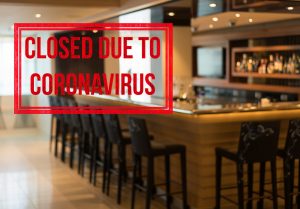Pub fans prove wary of re-opening

While less than one in five participants believe this sector should among the first four for the lifting of restrictions, nearly half place it in the top four for the positive impact it would have on their lives.
In fact people expect the lifting of any social distancing restrictions to be slow and gradual and they believe that most indoor social activities not possible until at least September, according to new research from the ESRI.
The data, gathered together in Public Expectations for Lifting Covid-19 Restrictions, was collected the week before the Taoiseach’s May 1st announcement of the Roadmap for Reopening Society and Business. It finds that most respondents also believe that any lifting of restrictions should prioritise necessities ahead of leisure activities.
All phases of the roadmap are subject to review based on public health data but the study finds no evidence that a substantial proportion of the public expect a more rapid lifting of restrictions.
If it proves possible to meet the timetable outlined in the roadmap, this would equate to a substantially more rapid lifting of restrictions than the public expected before the roadmap was published.
The interactive study involved a representative sample of adults in Ireland. This sample expects non-essential shops and workplaces to re-open gradually between June and August with most expecting cafés and restaurants to reopen in July or August (not on June the 29th as in the roadmap) but schools and indoor leisure venues to remain closed until at least September (including sports facilities and gyms, arts and cultural centres, pubs and clubs). Indeed, a return to “normality” is not expected until at least 2021.
The data indicates that respondents originally felt that only cafés and restaurants would be open ‘by the end of August’. It was later in 2020 for all others, states the report.
“Overall, the most conservative expectations were for the re-opening of pubs and clubs, where 28% believed that this would not occur until at least 2021.”
Self vs society
The study also asked people to rank restrictions according to which they think should be lifted first and which, if lifted, would be best for them personally. While people want to see the restriction on social contact beyond the household lifted first, they also think that necessities like workplaces, services and transport should take priority over leisure activities.
The clearest example of this relates to pubs and restaurants, which rank high for personal benefit, but low for when people think the restriction should actually be lifted.
Only 1% of the sample thinks that pubs/restaurants/cafés/clubs should be the first to have restrictions lifted and less than one in five (17.4%) think that this sector should be in the top four for the order in which restrictions should be lifted.
Indeed 28% believe that this sector should be the last to have restrictions lifted.
However set against this, while less than one in five participants believe this sector should among the first four for the lifting of restrictions, nearly half (47%) place it in the top four for the positive impact it would have on their lives. And one in 20 (4.8%) put it at the top of what would have the most positive personal impact on their lives.
“The data do not provide a reason for the difference,” states the report, “It could reflect the perceived risk of infection associated with re-opening these specific businesses or, more straightforwardly, the elevation of functional societal benefits over simple pleasures.”
The report concludes that while it would be understandable to think that the public would therefore be eager to resume aspects of their life that most improve that wellbeing, very limited evidence of this exists in participants’ ranking of when they think restrictions should be lifted.
“This study reveals further evidence of Ireland’s ability to pull together at a time of crisis,” said Dr Cameron Belton of the ESRI’s Behavioural Research Unit, ““In the face of this disease the large majority of people have absorbed the need to proceed slowly and carefully. They are willing to make sacrifices now for a better outcome in the long-run.”








